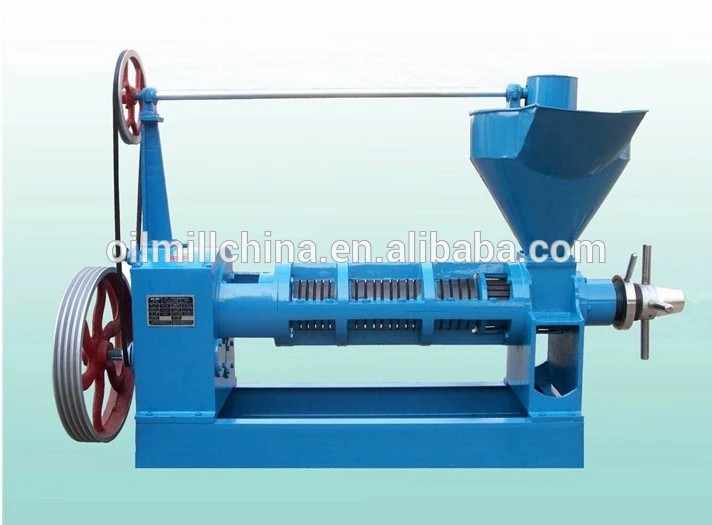Dec . 06, 2024 14:31 Back to list
flaxseed oil refinery unit factory
The Evolution and Importance of Flaxseed Oil Refinery Units
Flaxseed oil, derived from the seeds of the flax plant (Linum usitatissimum), has gained significant attention in the health and wellness industries due to its rich content of omega-3 fatty acids, lignans, and other beneficial compounds. As demand for flaxseed oil continues to grow, particularly among health-conscious consumers, the establishment of dedicated flaxseed oil refinery units has become increasingly important. This article explores the nuances of flaxseed oil refinery units, their processes, and their relevance in today’s market.
The Growing Demand for Flaxseed Oil
In recent years, flaxseed oil has been recognized as a superfood, attributed to its numerous health benefits, including its potential to improve heart health, reduce inflammation, and support skin health. As awareness of these benefits expands, consumers are increasingly seeking high-quality flaxseed oil, prompting manufacturers to invest in specialized production facilities. This surge in demand underscores the need for efficient and effective refinery units dedicated to flaxseed oil extraction and processing.
Understanding the Refining Process
The journey from flaxseed to oil involves several critical steps. Initially, flaxseeds must be cleaned to remove any impurities. Following this, the seeds undergo a cracking process to facilitate oil extraction. Two primary methods are employed for extracting oil mechanical pressing and chemical extraction.
1. Mechanical Pressing This method involves pressing the seeds through a mechanical expeller, yielding crude flaxseed oil. While this method retains many nutrients, the oil may contain impurities and undesirable flavors.
2. Chemical Extraction To maximize oil yield, chemical solvents such as hexane are often used. This method extracts a higher volume of oil but may result in residues from the solvents, requiring further purification.
After extraction, the crude oil goes through various refining processes, including degumming, neutralization, bleaching, and deodorization. Each step is crucial in enhancing the oil's quality, taste, shelf life, and safety for consumption.
Types of Refinery Units
flaxseed oil refinery unit factory

Flaxseed oil refinery units can vary in scale and technology, catering to different market demands. These can range from small-scale artisan operations that focus on organic and premium quality oils to large-scale industrial facilities designed for mass production.
1. Batch Refinery Units These units handle smaller quantities of flaxseed oil, allowing for greater attention to detail and quality control. They are often favored by producers aiming to create artisanal oils, maintaining the highest standards of raw material selection and processing.
2. Continuous Refinery Units Designed for large-scale production, continuous units operate with a streamlined process that allows for faster output. These facilities are ideal for meeting the needs of large retail chains and commercial processors who require a consistent supply of flaxseed oil.
Technological Advancements in Refining
Innovation plays a crucial role in the efficiency of flaxseed oil refinery units. Advances in technology have led to the development of more sustainable extraction methods, such as cold pressing techniques that preserve the oil’s nutritional properties while reducing energy consumption. Moreover, newer filtration and purification technologies enhance oil quality, ensuring that end products are free from contaminants and undesirable flavors.
Environmental Considerations
As the flaxseed oil industry grows, so does the necessity for sustainable practices. Increasing awareness about environmental impacts has driven refinery units to adopt eco-friendly techniques. This includes waste reduction, energy efficiency, and the use of organic flaxseeds sourced from sustainable farms. Manufacturers are also exploring the potential of recycling by-products of the refining process, such as cake left after oil extraction, which can be used as animal feed or in the production of other health supplements.
Conclusion
The establishment and evolution of flaxseed oil refinery units are vital in meeting the growing consumer demand for high-quality flaxseed oil. With a focus on sustainability, innovation, and efficiency, these units not only enhance the quality and safety of the oil but also contribute positively to the environment and community. As the health benefits of flaxseed oil continue to be recognized, the importance of dedicated refinery units will only expand, ensuring that this superfood remains accessible and beneficial for future generations.
-
Expert Oil Filter Machine Service & Solutions | Quality & Reliability
NewsAug.22,2025
-
LZY-206 Double Screw Cold Oil Press – Maximize Yield, Preserve Nutrients
NewsAug.21,2025
-
Efficient Black Seed Oil Expeller & Multi-Seed Oil Press
NewsAug.19,2025
-
HP 120 Model Cold Oil Press-Hebei Huipin Machinery|Energy Efficiency, Multi-Functionality
NewsAug.18,2025
-
HP 120 Model Cold Oil Press-Hebei Huipin Machinery|Oil Extraction, Multi-Functional
NewsAug.18,2025
-
HP 120 Cold Oil Press - Hebei Huipin | Automation & Efficiency
NewsAug.18,2025
